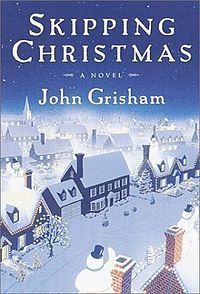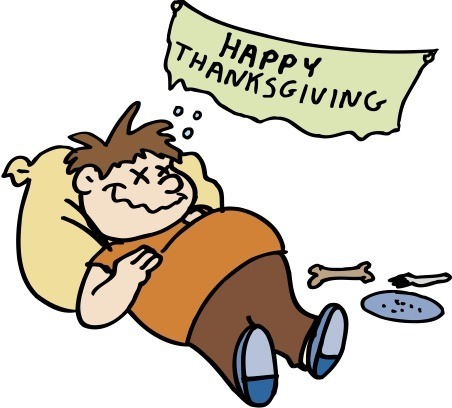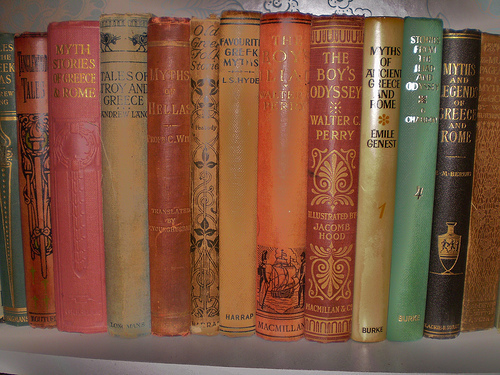Jade Varden's Blog, page 49
November 30, 2013
Books on Film: Christmas with the Kranks
It only takes four words to get me excited about a film: Tim Allen holiday movie. Even if he's not putting on the big red suit, I'm totally there. So I've seen Christmas with the Kranks like 8 times. What I just discovered recently is that it's a story...and it was written by John Grisham!

The Book
To be technical, the book is called Skipping Christmas. The title was changed for film; no one knows why. But in story form, this one's about Luther and Nora Krank. And yes, it was always written as a funny story. It became a bestseller when it was released during the holiday season of 2001.

You see, Luther and Nora do Christmas every year in a big way. But this year their daughter Blair is going to Peru with the Peace Corps. It's the first time they will be spending Christmas apart, and Nora is beside herself.
Luther, a numbers guy, adds up how much money they usually spend on Christmas. He's shocked by the total cost of decorations, entertaining and gifts. Instead, he purchases a 10-day cruise. Nora is skeptical at first, but soon she's sort of enjoying the fact that she doesn't have to shop or decorate for Christmas, much less throw a stressful Christmas Eve party.
It would be great, in fact, but the neighbors are soon harassing Luther and Nora because they won't decorate their home. This could keep the block from winning a coveted decorating prize. Vic Frohmeyer leads the protests against them.
A series of hijinks follow until a call from Blair arrives on Christmas Eve, while Luther and Nora are packing. She's coming home for Christmas! What unfolds turns Skipping Christmas into a truly heart-warming holiday tale. It's also a pretty quick read, which makes it nice for the busy holiday season.
But if you're like me, and you adore Tim Allen, you're also going to want to see this one on film.
The Movie
Skipping Christmas turned into Christmas with the Kranks in 2004, and the Kranks are Tim Allen as Luther and Jamie Lee Curtis as Nora. They're great together. The movie follows the book with extreme faithfulness, which solidifies my belief that short stories make for much better adaptations than full-length novels. Even the bedroom scene, where Nora and Luther argue about charitable contributions, made it into the movie.

Dan Aykroyd perfectly plays neighborhood boss Vic Frohmeyer, and keep your eyes peeled for lots of other interesting cameo roles (including Cheech -- you can't miss Cheech). The end of the film is just as heartwarming as it is in the book, and the role of Luther is played perfectly by Tim Allen. I love this movie, but there are lots of critics who don't agree. If you're like me and you enjoy a good holiday tale (and Tim Allen), you should love it.
What Got Adapted?
A few scenes are added to the movie, the better to bring in the laughs. In the end, Luther needs a little extra prompting to come to his conclusion, extra dialogue that isn't included in the original story. On paper, the story is a little bit more fuzzy. On film, it's a little more funny (but with that cast, what do you expect)? Either way, this is a great story that's full of laughs.

The Book
To be technical, the book is called Skipping Christmas. The title was changed for film; no one knows why. But in story form, this one's about Luther and Nora Krank. And yes, it was always written as a funny story. It became a bestseller when it was released during the holiday season of 2001.

You see, Luther and Nora do Christmas every year in a big way. But this year their daughter Blair is going to Peru with the Peace Corps. It's the first time they will be spending Christmas apart, and Nora is beside herself.
Luther, a numbers guy, adds up how much money they usually spend on Christmas. He's shocked by the total cost of decorations, entertaining and gifts. Instead, he purchases a 10-day cruise. Nora is skeptical at first, but soon she's sort of enjoying the fact that she doesn't have to shop or decorate for Christmas, much less throw a stressful Christmas Eve party.
It would be great, in fact, but the neighbors are soon harassing Luther and Nora because they won't decorate their home. This could keep the block from winning a coveted decorating prize. Vic Frohmeyer leads the protests against them.
A series of hijinks follow until a call from Blair arrives on Christmas Eve, while Luther and Nora are packing. She's coming home for Christmas! What unfolds turns Skipping Christmas into a truly heart-warming holiday tale. It's also a pretty quick read, which makes it nice for the busy holiday season.
But if you're like me, and you adore Tim Allen, you're also going to want to see this one on film.
The Movie
Skipping Christmas turned into Christmas with the Kranks in 2004, and the Kranks are Tim Allen as Luther and Jamie Lee Curtis as Nora. They're great together. The movie follows the book with extreme faithfulness, which solidifies my belief that short stories make for much better adaptations than full-length novels. Even the bedroom scene, where Nora and Luther argue about charitable contributions, made it into the movie.

Dan Aykroyd perfectly plays neighborhood boss Vic Frohmeyer, and keep your eyes peeled for lots of other interesting cameo roles (including Cheech -- you can't miss Cheech). The end of the film is just as heartwarming as it is in the book, and the role of Luther is played perfectly by Tim Allen. I love this movie, but there are lots of critics who don't agree. If you're like me and you enjoy a good holiday tale (and Tim Allen), you should love it.
What Got Adapted?
A few scenes are added to the movie, the better to bring in the laughs. In the end, Luther needs a little extra prompting to come to his conclusion, extra dialogue that isn't included in the original story. On paper, the story is a little bit more fuzzy. On film, it's a little more funny (but with that cast, what do you expect)? Either way, this is a great story that's full of laughs.
Published on November 30, 2013 05:30
November 28, 2013
Writing 101: Writing About the Holidays
The holiday season makes people feel excited for something, anxious and happy. It's a thrilling time, and it's a time when everyone's wallet is a little more open than usual. So writing about the holidays is tempting. After all, doesn't the Hallmark channel need new movies about Christmas every single year? Obviously holiday stories are in demand. So why shouldn't you write about them?
Don't worry -- I'm going to tell you why.

My Thanksgiving with YouTube
Let me start by telling you a story, since I am a storyteller. I was planning a pretty big event about three years ago, and I was so into it I was barely sleeping at night. So a few days before Thanksgiving, I found myself cruising forums at 3am. It's not as bad as it sounds -- it was a party-planning forum. And there was a link to a YouTube video, and I'm a sucker for those.
It ends up being a video diary of this Australian guy who was getting the wrong email. Apparently, he had the same name as an American and he was on the family mailing list in lieu of the correct person. This is how he became aware of an intriguing discussion about Thanksgiving. He read about deviled eggs, and turkey, and stuffing and gravy and all sorts of different back-and-forth. It was fascinating stuff, so much so that he launched a YouTube campaign in order to find this family.
They contacted him, and he traveled all the way to America to celebrate Thanksgiving with them. He posted videos of his entire adventure, and I spent the entire holiday avidly watching. You see, this was special because they don't have Thanksgiving in Australia.
It's unique to the United States, because it's a holiday that was originated by the Pilgrims. Those kinds of things never occur to me, when I'm in the midst of the holiday season. I assume everyone is shopping pumpkin pie recipes and thinking about stuffing on the fourth Thursday in November, but that's just not the case.
And that's the point of my rather long story: writing about the holidays can alienate a huge audience. Write about a holiday that's unique to a country (like Canada's Boxing Day, or the Fourth of July in America) and you're going to be writing about something that's foreign to many readers. That means you have to write about the holiday really well. Explain what it's about, why it's a holiday, all of that stuff -- and do it without screwing up the narrative of the story. Otherwise, your readers may just sit through the story scratching their heads and that's no good for anyone.
Even international holidays, like Halloween, are pretty tricky stuff. Many of these holidays aren't related to a country, but they are related to religion. Christmas is a prime example of this. It's a holiday associated with Christians, so some of your readers may be unable to relate to this story. How can you write it in a way that's relatable to everyone? That's another one of the challenges that come with writing about holidays.
It's difficult, but it's doable. Take extra care to explain the event, and what's unique about it, so your readers can fully understand what's going on. Find the common themes in the story that make it relatable to everyone, in spite of their religion or origin. A story about the holidays that's well-written can become a timeless classic. After all, A Christmas Carol was just another story, once.
Don't worry -- I'm going to tell you why.

My Thanksgiving with YouTube
Let me start by telling you a story, since I am a storyteller. I was planning a pretty big event about three years ago, and I was so into it I was barely sleeping at night. So a few days before Thanksgiving, I found myself cruising forums at 3am. It's not as bad as it sounds -- it was a party-planning forum. And there was a link to a YouTube video, and I'm a sucker for those.
It ends up being a video diary of this Australian guy who was getting the wrong email. Apparently, he had the same name as an American and he was on the family mailing list in lieu of the correct person. This is how he became aware of an intriguing discussion about Thanksgiving. He read about deviled eggs, and turkey, and stuffing and gravy and all sorts of different back-and-forth. It was fascinating stuff, so much so that he launched a YouTube campaign in order to find this family.
They contacted him, and he traveled all the way to America to celebrate Thanksgiving with them. He posted videos of his entire adventure, and I spent the entire holiday avidly watching. You see, this was special because they don't have Thanksgiving in Australia.
It's unique to the United States, because it's a holiday that was originated by the Pilgrims. Those kinds of things never occur to me, when I'm in the midst of the holiday season. I assume everyone is shopping pumpkin pie recipes and thinking about stuffing on the fourth Thursday in November, but that's just not the case.
And that's the point of my rather long story: writing about the holidays can alienate a huge audience. Write about a holiday that's unique to a country (like Canada's Boxing Day, or the Fourth of July in America) and you're going to be writing about something that's foreign to many readers. That means you have to write about the holiday really well. Explain what it's about, why it's a holiday, all of that stuff -- and do it without screwing up the narrative of the story. Otherwise, your readers may just sit through the story scratching their heads and that's no good for anyone.
Even international holidays, like Halloween, are pretty tricky stuff. Many of these holidays aren't related to a country, but they are related to religion. Christmas is a prime example of this. It's a holiday associated with Christians, so some of your readers may be unable to relate to this story. How can you write it in a way that's relatable to everyone? That's another one of the challenges that come with writing about holidays.
It's difficult, but it's doable. Take extra care to explain the event, and what's unique about it, so your readers can fully understand what's going on. Find the common themes in the story that make it relatable to everyone, in spite of their religion or origin. A story about the holidays that's well-written can become a timeless classic. After all, A Christmas Carol was just another story, once.
Published on November 28, 2013 05:30
November 27, 2013
Writing 101: Self-Publishing as a Stepping Stone
In the main, there are two different types of indie authors (and I'm being broad here, so no one has to send me emails about this). There's the indie authors who self-publish because they've already been on the Merry-Go-Round and now they want to take charge. Then there's the indie authors who self-publish because they're hoping it will lead to something more: a book deal with a major publisher. There's nothing wrong with using self-publishing as a stepping stone. Just make sure you're going about it the right way, or you could step right into the lake.

Stepping Out
For some authors, self-publishing is merely a stepping stone to another type of publishing -- small press, or mass market maybe. But if that's your end game, start working on achieving that goal right now. As an indie who wants to move on to something else, there are some things you have to focus on:
Brand image: You're a brand, so treat yourself like one. Build a blog, gain a following, and establish yourself across all major social media platforms. Keep your brand consistent across sites. That means use the same images, the same wallpapers and the same author name everywhere. Brand recognition is the most important aspect of any brand. Fans: You need a fan base, and you want to build a pretty strong one. Reach out on Twitter and Facebook. Join reading groups, author groups and forums where book-buyers gather. Comment on book blogs and participate in reading and writing communities. Get a strong following on Twitter, and you can accomplish almost anything. Books: You want to build up a strong catalog of books if you're going to move on to another form of publishing. Show them that you know how to write, sell and market your work. Publish regularly, and frequently, in order to build up your catalog.Reviews: Get a lot of reviews. You want to show publishers that you can get them. And if you get them, do what you can to make sure they're good. Produce high-quality, well-edited work and you'll stand a much better chance of doing that.
Self-publishing isn't a permanent gig for everyone. If you want it to be a stepping stone for you, keep your goals focused ahead while you stay rooted in the here and now. Conduct yourself like a professional author, and you'll be one. Once you're ready to take that next step and you have an amazing book to sell, start reaching out to literary agents and publishers. Don't wait for them to come to you. Always be trying to take the next step. What else are stepping stones for?

Stepping Out
For some authors, self-publishing is merely a stepping stone to another type of publishing -- small press, or mass market maybe. But if that's your end game, start working on achieving that goal right now. As an indie who wants to move on to something else, there are some things you have to focus on:
Brand image: You're a brand, so treat yourself like one. Build a blog, gain a following, and establish yourself across all major social media platforms. Keep your brand consistent across sites. That means use the same images, the same wallpapers and the same author name everywhere. Brand recognition is the most important aspect of any brand. Fans: You need a fan base, and you want to build a pretty strong one. Reach out on Twitter and Facebook. Join reading groups, author groups and forums where book-buyers gather. Comment on book blogs and participate in reading and writing communities. Get a strong following on Twitter, and you can accomplish almost anything. Books: You want to build up a strong catalog of books if you're going to move on to another form of publishing. Show them that you know how to write, sell and market your work. Publish regularly, and frequently, in order to build up your catalog.Reviews: Get a lot of reviews. You want to show publishers that you can get them. And if you get them, do what you can to make sure they're good. Produce high-quality, well-edited work and you'll stand a much better chance of doing that.
Self-publishing isn't a permanent gig for everyone. If you want it to be a stepping stone for you, keep your goals focused ahead while you stay rooted in the here and now. Conduct yourself like a professional author, and you'll be one. Once you're ready to take that next step and you have an amazing book to sell, start reaching out to literary agents and publishers. Don't wait for them to come to you. Always be trying to take the next step. What else are stepping stones for?
Published on November 27, 2013 05:30
November 26, 2013
Writing 101: Flexibility
In the past few days, I've come to realize that I'm extremely rigid. I tweet at the same times, I eat at the same times. I follow the same schedule every day of the week. Pick a day, pick a time and I can tell you what I'm going to be doing. And then I became frightfully ill over the weekend...and I realized that a little flexibility is always good. I think this can apply to all writers...not just us ill ones.

What Doesn't Bend...
Read through my blog, and it's obvious that I'm in favor of being organized. I believe in sticking to a schedule, writing to-do lists and maintaining regular patterns. But I believe in all that stuff just a little too much. When it becomes an obsession, it becomes a problem.
It became a huge problem for me when I got sick, because suddenly I couldn't get off the couch long enough to complete my to-do list. I found out, the hard way, that it pays to be flexible because you don't exactly know what's going to happen from one day to the next. When you try to schedule everything, you're going to find yourself in a position of not getting anything done -- at least one day. And that one day can mess up an entire week, or an entire month, if you're as rigid about your schedule as I am.
And when you're that rigid, you aren't doing yourself any favors as a writer. Creativity needs a little room to breathe. It needs space to play and cavort and have fun. The mind needs to wander. Time should be wasted, at least every once in a while. How else can new ideas come rushing into your mind? How else can new discoveries be made? How else will you rest when you really really need it? There's an old saying that tells us what doesn't bend will break, and I absolutely know this to be true. I'm going to be more flexible, try to take a little bit more time to breathe in-between tasks, and maybe not schedule myself for every available minute of the day.
All authors need time to relax, or else the creative juices will dry up. So on that note, I'm going back to the couch.

What Doesn't Bend...
Read through my blog, and it's obvious that I'm in favor of being organized. I believe in sticking to a schedule, writing to-do lists and maintaining regular patterns. But I believe in all that stuff just a little too much. When it becomes an obsession, it becomes a problem.
It became a huge problem for me when I got sick, because suddenly I couldn't get off the couch long enough to complete my to-do list. I found out, the hard way, that it pays to be flexible because you don't exactly know what's going to happen from one day to the next. When you try to schedule everything, you're going to find yourself in a position of not getting anything done -- at least one day. And that one day can mess up an entire week, or an entire month, if you're as rigid about your schedule as I am.
And when you're that rigid, you aren't doing yourself any favors as a writer. Creativity needs a little room to breathe. It needs space to play and cavort and have fun. The mind needs to wander. Time should be wasted, at least every once in a while. How else can new ideas come rushing into your mind? How else can new discoveries be made? How else will you rest when you really really need it? There's an old saying that tells us what doesn't bend will break, and I absolutely know this to be true. I'm going to be more flexible, try to take a little bit more time to breathe in-between tasks, and maybe not schedule myself for every available minute of the day.
All authors need time to relax, or else the creative juices will dry up. So on that note, I'm going back to the couch.
Published on November 26, 2013 05:30
November 25, 2013
Writing 101: Emotionally Involved
There are probably a few Greek myths about some sculptor who fell deeply in love with his creation, to the point of pure madness. I think every author has experienced this type of insanity at least once. Right now, it's my turn. I made a mistake with my newest book. I became emotionally involved.

Heart of Stone
To be a good writer, you must connect with your characters. You must care about them. You should laugh at funny scenes, cry during sad ones and root for the hero to win the day. You have to pour your heart on the page, bleed over every word, wrest all emotion from your soul and spit it out in whole sentences.
Then, you have to turn it all off. You should absolutely care about the story you tell...but under no circumstances should you feel emotional about the book that results.Walking this tightrope can absolutely drive you insane if you let it.
While you're writing the story, it's just yours. But once that story becomes a book, everyone else in the world has the right to rip it apart. If you're not emotionally prepared for that, it can destroy your self-confidence. It may even shatter your hope. And let's face it, most of the time all authors really have to go on is hope.
So now for the really hard part: how do you stop caring about something that made you sweat, bleed, laugh, cry, hope and despair? How do you turn all that off and avoid becoming emotionally involved?
Often, the best thing to do is start a new book. Get emotionally involved with the story, turn it into a book, and then move on to the next project. Once it's a book, it's not just yours anymore. So don't put your heart into it anymore. Save your emotions and your heart for the story, because that's private. Keep moving on to new projects to avoid getting too attached to any one book, and don't get emotionally involved.
Published on November 25, 2013 05:30
November 21, 2013
Writing 101: Story Starters
Inspiration has a funny way of choosing not to strike when you decide it should. When authors want to write, but don't have anything to write, they may turn to story starters to get those creative juices flowing again. So what the heck are story starters?

Starting a Story...
There are lots of reasons why it's hard to start writing on a blank page. You may not have any ideas that you feel wild about. You may find yourself feeling restless, unable to settle on a single idea. You may keep re-writing an opening line, only to erase and try it again.
Once, when I was participating on a writing panel, another author told a story about someone who had writer's block. He wanted to write but didn't know what to write, so he just sat down and started describing the house he was staying in. It was a friend's. He began to describe and write, and this is how the novel Ragtime was born. Time magazine rated the book in one of their Top 100 lists, and it's highly regarded among readers and critics.
I realize now that this act was a story starter. E. L. Doctrow didn't have any ideas, but he was inspired by what he saw...so he started to write about it. Inspiration doesn't always take the form of a whole story. Sometimes, that comes later.
I like to imagine things about the strangers I see out in the world. Look around you. Is that woman in the line at the store a former French spy on the run for her life? That stressed-out mother of two, is she having a torrid affair with a bag boy?
Story starters may not always become novels, but they can help you learn how to flex your creative muscles. When you learn how to take an idea and put it on the page, writing an entire book can't be too far behind.

Starting a Story...
There are lots of reasons why it's hard to start writing on a blank page. You may not have any ideas that you feel wild about. You may find yourself feeling restless, unable to settle on a single idea. You may keep re-writing an opening line, only to erase and try it again.
Once, when I was participating on a writing panel, another author told a story about someone who had writer's block. He wanted to write but didn't know what to write, so he just sat down and started describing the house he was staying in. It was a friend's. He began to describe and write, and this is how the novel Ragtime was born. Time magazine rated the book in one of their Top 100 lists, and it's highly regarded among readers and critics.
I realize now that this act was a story starter. E. L. Doctrow didn't have any ideas, but he was inspired by what he saw...so he started to write about it. Inspiration doesn't always take the form of a whole story. Sometimes, that comes later.
I like to imagine things about the strangers I see out in the world. Look around you. Is that woman in the line at the store a former French spy on the run for her life? That stressed-out mother of two, is she having a torrid affair with a bag boy?
Story starters may not always become novels, but they can help you learn how to flex your creative muscles. When you learn how to take an idea and put it on the page, writing an entire book can't be too far behind.
Published on November 21, 2013 05:30
November 20, 2013
Writing 101: The Anti-Hero
Great stories are about great characters...but that doesn't necessarily mean those characters are good guys. Sometimes, the main character is an anti-hero.

Look, No Hands!
I believe that writing about an anti-hero is some of the toughest writing anyone can do. Anti-heroes do not have a lot of redeeming qualities. They aren't just flawed, they're almost impossible to like.
Almost impossible. There's a delicate balance to writing an anti-hero, a virtual tightrope walk that authors must undertake. Will you cross safely to the end of the book...or fall on your face?
Not Quite a Villain
A good anti-hero isn't all that likeable. They do questionable things, they hurt good people, they make mistakes and sometimes they commit downright evil acts. But here's the rub: you don't want your readers to hate your anti-hero. You want them to like this character...in spite of all the bad things they do. In a word, that's difficult. Keep a few things in mind, and keep that dark anti-hero something less than loathsome.
Reason: Anti-heroes are logical. You don't always agree with Scarlett O'Hara, but you understand why she's behaving this way. This is the key. If your anti-hero is acting without cause, their evil actions are just senseless. Make your anti-heroes reasonable people who shun society's rules for a specific reason, and I am much more likely to like your character.Redemption: Give your anti-hero really nasty qualities. Make them terrible if you like. But add some redeeming factor to their overall character. Becky Sharp was a terrible wife, mistress and employee, but she tried to be something of a good friend. She made a final gesture of friendship when it mattered most, and for this we can like her.Regret: When someone does a bad thing, they usually know it's bad. If they feel sorry about it, then we can try to forgive that person. The Grinch is an all-around awful guy, but in the end he regrets his actions. Make sure your anti-hero feels something about what they're doing or what they've done. Without regret, there can be no pardon. And if I can't forgive your character, I can't really get into them, can I? Give your anti-heroes the gifts of reason, redemption and regret...and they won't be such an evil character after all. Good anti-heroes are multi-faceted, complicated and thoroughly interesting. People will keep turning pages to see what the character will do next, but only if they can find a little bit of like amid all that dislike in their hearts.
Published on November 20, 2013 05:30
November 19, 2013
Writing 101: Don't Hold Back
It's really hard to be an author when people know you're an author. If you're really going to write that book, you're going to have to face some uncomfortable moments. Here's the piece of advice you really need if you're really going to do this: don't hold back. In other words, when you're writing you have to stop worrying about what your mother might think.

Well, I Can't Write That...
I've been pretty forthcoming about my rampant inability to write sex scenes. It's a problem I've always had with my writing, because the inevitable thought always creeps in: one of my parents might read this. This thought is so daunting, so overwhelming, so completely terrifying that I always end up wimping out. Euphemisms are where I live. But this is a horrible flaw...and I implore you not to repeat it with your own writing.
Because if you're going to create really good writing, you can't hold back. You can't be daunted by the thought that your mom might blush at that sex scene, or your ex might somehow read your book and recognize himself in your main villain. You can't worry that your third-grade teacher will pick up on that grammatical error you keep making, or be afraid to drop the f-bomb because you think your pious brother-in-law won't be able to take it.
You can be as careful as you like, and you're still going to end up writing something that causes someone to blink twice. So stop thinking about what any of your potential critics might say, and write what you need to write to tell the story that you need to tell.
If you write something that offends a family member, you might have to smooth over some ruffled feathers. But the alternative is that you end up writing something that isn't really true to who you are, because you held back. Which reality would you rather face?

Well, I Can't Write That...
I've been pretty forthcoming about my rampant inability to write sex scenes. It's a problem I've always had with my writing, because the inevitable thought always creeps in: one of my parents might read this. This thought is so daunting, so overwhelming, so completely terrifying that I always end up wimping out. Euphemisms are where I live. But this is a horrible flaw...and I implore you not to repeat it with your own writing.
Because if you're going to create really good writing, you can't hold back. You can't be daunted by the thought that your mom might blush at that sex scene, or your ex might somehow read your book and recognize himself in your main villain. You can't worry that your third-grade teacher will pick up on that grammatical error you keep making, or be afraid to drop the f-bomb because you think your pious brother-in-law won't be able to take it.
You can be as careful as you like, and you're still going to end up writing something that causes someone to blink twice. So stop thinking about what any of your potential critics might say, and write what you need to write to tell the story that you need to tell.
If you write something that offends a family member, you might have to smooth over some ruffled feathers. But the alternative is that you end up writing something that isn't really true to who you are, because you held back. Which reality would you rather face?
Published on November 19, 2013 05:30
November 18, 2013
Writing 101: The Danger of Classic Literature
Jane Austen. Herman Melville. Charles Dickens. Believe me, I could go on and on. These authors, and many others, created books in their lifetime that would go on to become classics -- books that are so good they're assigned reading in schools. I pretended to read most of them during my own school days.

And by "pretended," I mean that I didn't read them but I paid attention during classroom discussions. You see, I love classic literature as much as the next bookworm. But I think there's a also a danger in it, and I'm here to warn you about it.
And You, Sir, Are No Mark Twain
I didn't read those books in school for one reason: those books are really hard to read. The poetic language is magical it's true, but it's also cumbersome as all get-out. The lyrical, multi-syllable words are incredibly outdated and the long-winded, musical dialogue no longer rings true. Reading those words aloud will transport you to another time and place...because those books were written in another time and place.
Your books must be written for a modern audience, and that means you can't use words like "twixt" or "fortnight" very often. If you do, many of your readers might not know what the hell you're talking about. The danger of classic literature is clear: you might absorb too much of that highly overwrought, flowery style.
Books are not like that anymore. Many of today's authors advocate getting to the point in a clear way. This is because the average reading level for American audiences is grade 8. I couldn't get through Moby Dick or The Scarlett Letter in high school, so clearly I didn't have the skills to figure them out at grade 8.
Classic literature was written for the tone of its day. People really spoke that way back in those days. They don't speak like that today. This is why your books have to be written in today's tone, not yesterdays. So read classic literature if that's what you like, but don't absorb so much of it that you find yourself writing in a similar style. It's wonderful to look back at those writers of the past, and people still buy those books today, but they're classic for a reason. Write in a way that's true to your time, and you'll write a book that could one day become a classic in its own right.

And by "pretended," I mean that I didn't read them but I paid attention during classroom discussions. You see, I love classic literature as much as the next bookworm. But I think there's a also a danger in it, and I'm here to warn you about it.
And You, Sir, Are No Mark Twain
I didn't read those books in school for one reason: those books are really hard to read. The poetic language is magical it's true, but it's also cumbersome as all get-out. The lyrical, multi-syllable words are incredibly outdated and the long-winded, musical dialogue no longer rings true. Reading those words aloud will transport you to another time and place...because those books were written in another time and place.
Your books must be written for a modern audience, and that means you can't use words like "twixt" or "fortnight" very often. If you do, many of your readers might not know what the hell you're talking about. The danger of classic literature is clear: you might absorb too much of that highly overwrought, flowery style.
Books are not like that anymore. Many of today's authors advocate getting to the point in a clear way. This is because the average reading level for American audiences is grade 8. I couldn't get through Moby Dick or The Scarlett Letter in high school, so clearly I didn't have the skills to figure them out at grade 8.
Classic literature was written for the tone of its day. People really spoke that way back in those days. They don't speak like that today. This is why your books have to be written in today's tone, not yesterdays. So read classic literature if that's what you like, but don't absorb so much of it that you find yourself writing in a similar style. It's wonderful to look back at those writers of the past, and people still buy those books today, but they're classic for a reason. Write in a way that's true to your time, and you'll write a book that could one day become a classic in its own right.
Published on November 18, 2013 05:30
November 17, 2013
Indie News: You're Living in a Self-Publishing Boom
According to a new report from Bowker, self-published books in the marketplace increased by 59 percent from 2011 to 2012. That means we're all living in a bona fide self-publishing boom.

All By Themselves
Bowker used ISBN data from the United States to compile the report, which shows that more than 390,000 books were self-published in 2012 alone. Of these ISBNs, 40 percent of the titles were ebooks.
The total report shows the self-publishing trend over the past 6 years. Amazon CreateSpace, Smashwords and Lulu were at the top of the list for having the most self-published ISBNs. CreateSpace led with the most print books, while Smashwords was tops for ebooks.

All By Themselves
Bowker used ISBN data from the United States to compile the report, which shows that more than 390,000 books were self-published in 2012 alone. Of these ISBNs, 40 percent of the titles were ebooks.
The total report shows the self-publishing trend over the past 6 years. Amazon CreateSpace, Smashwords and Lulu were at the top of the list for having the most self-published ISBNs. CreateSpace led with the most print books, while Smashwords was tops for ebooks.
Published on November 17, 2013 05:30



